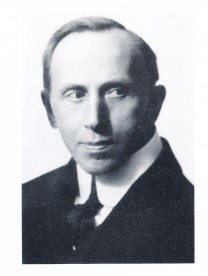Richard Karutz was born in Stralsund in 1867. He grew up in a family of merchants and attended school in his home town.
In 1886 Karutz took up his Medical Studies at the university in Jena. Five years later he successfully passed his State Exam. Eventually he worked as a surgeon on ships to South America and Western Africa.
In 1894 Karutz opened a surgery in Lübeck, where he worked for the following years. In 1903 and 1909 he traveled to the Mangyshlak Peninsula at the Caspian Sea. After his return he wrote a book about the Turkmen and Kirghiz.
Inspired by his journeys, Karutz developed a growing interest in Anthropology. He took up private studies and regularly visited the Ethnological Collection of the City of Lübeck.
In 1896 Karutz became head chairman of the collection. One year later a number of ethnographic objects were first presented to the public. Moreover, the collection expanded quickly, due to Karutz commitment and his plan to establish an anthropological museum in Lübeck.
During World War I Karutz served as an army doctor.
In 1921 Karutz moved to Stuttgart, but still took care of the Ethnological Collection of the City of Lübeck. After meeting Rudolf Steiner in 1920, Karutz tried to combine anthroposophical and ethnological perspectives. His writings were prohibited by the Nazi regime in the 1930s and neglected by the scientific community.
In 1938 Karutz moved to Dresden, where he died in 1945.
(Text based on an article at wikipedia.de; photo source. Brigitte Templin: O Mensch, erkenne dich selbst. Richard Karutz (1867-1945) und sein Beitrag zur Ethnologie. Lübecker Beiträge zur Ethnologie Bd. 1. Lübeck 2010)
Short Portrait: Richard Karutz

Richard Karutz
 further information
further information

